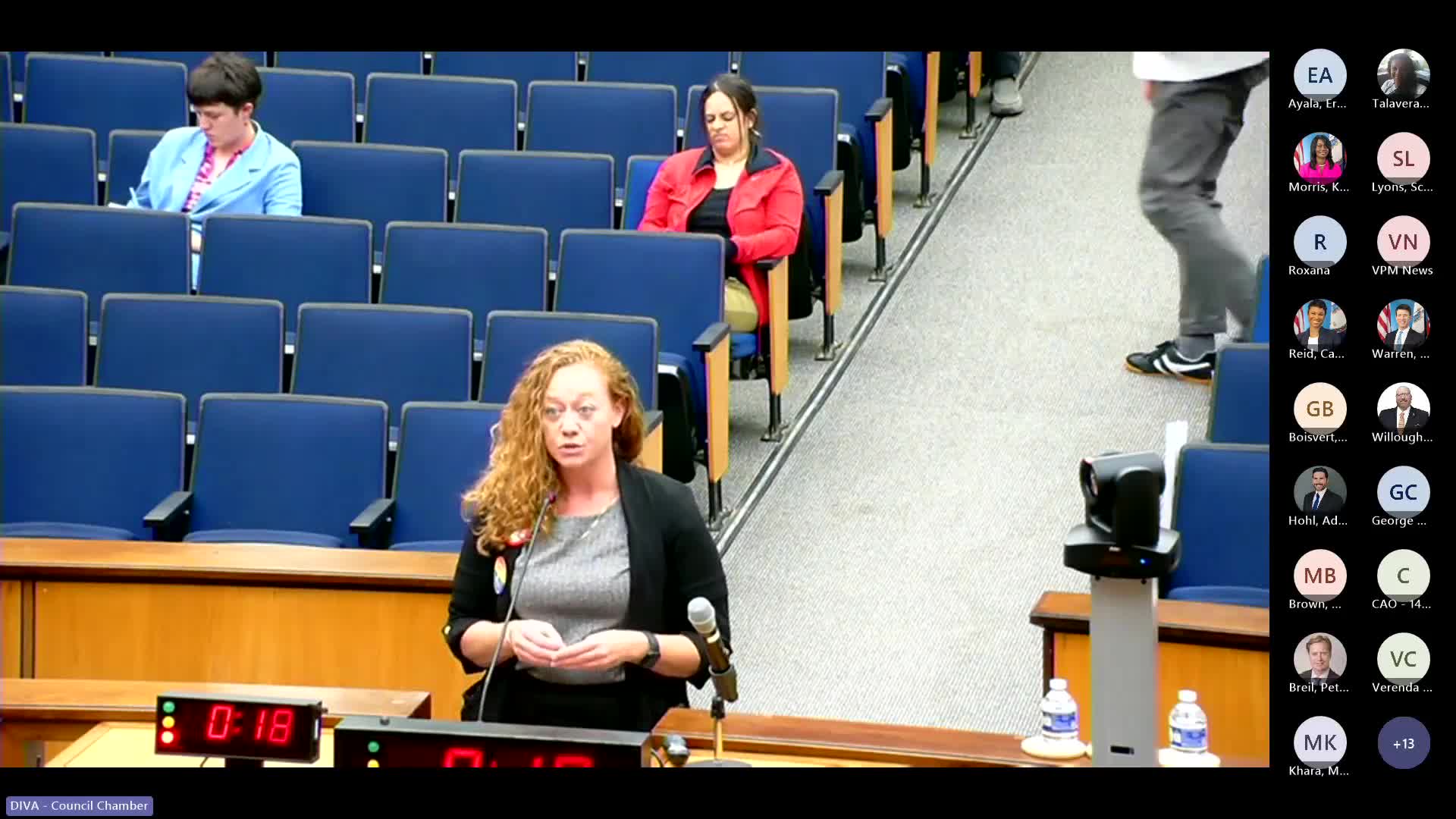Article not found
This article is no longer available. But don't worry—we've gathered other articles that discuss the same topic.
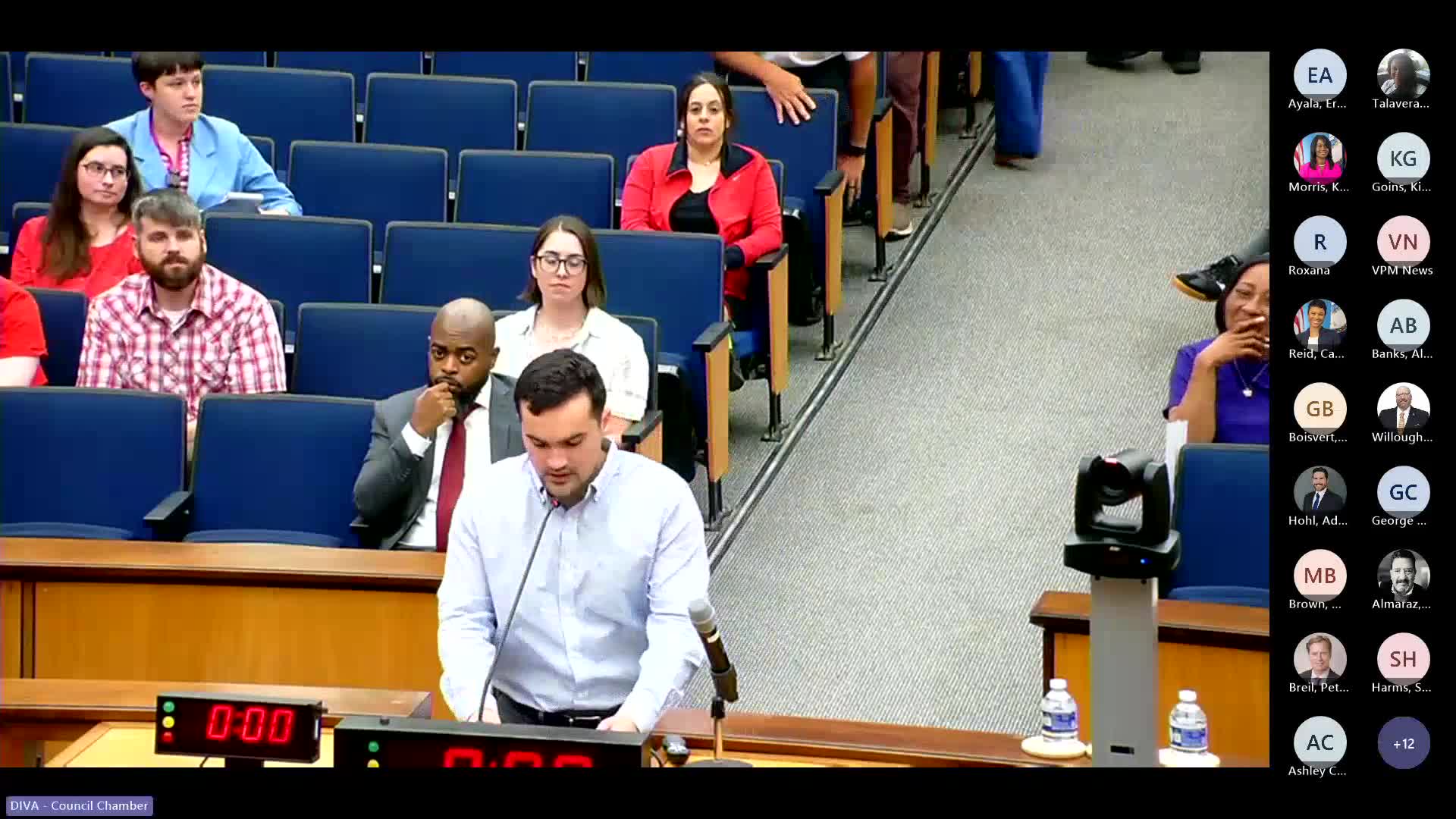
Resident tells council recent water problems reflect years of neglected investment, calls for accountability
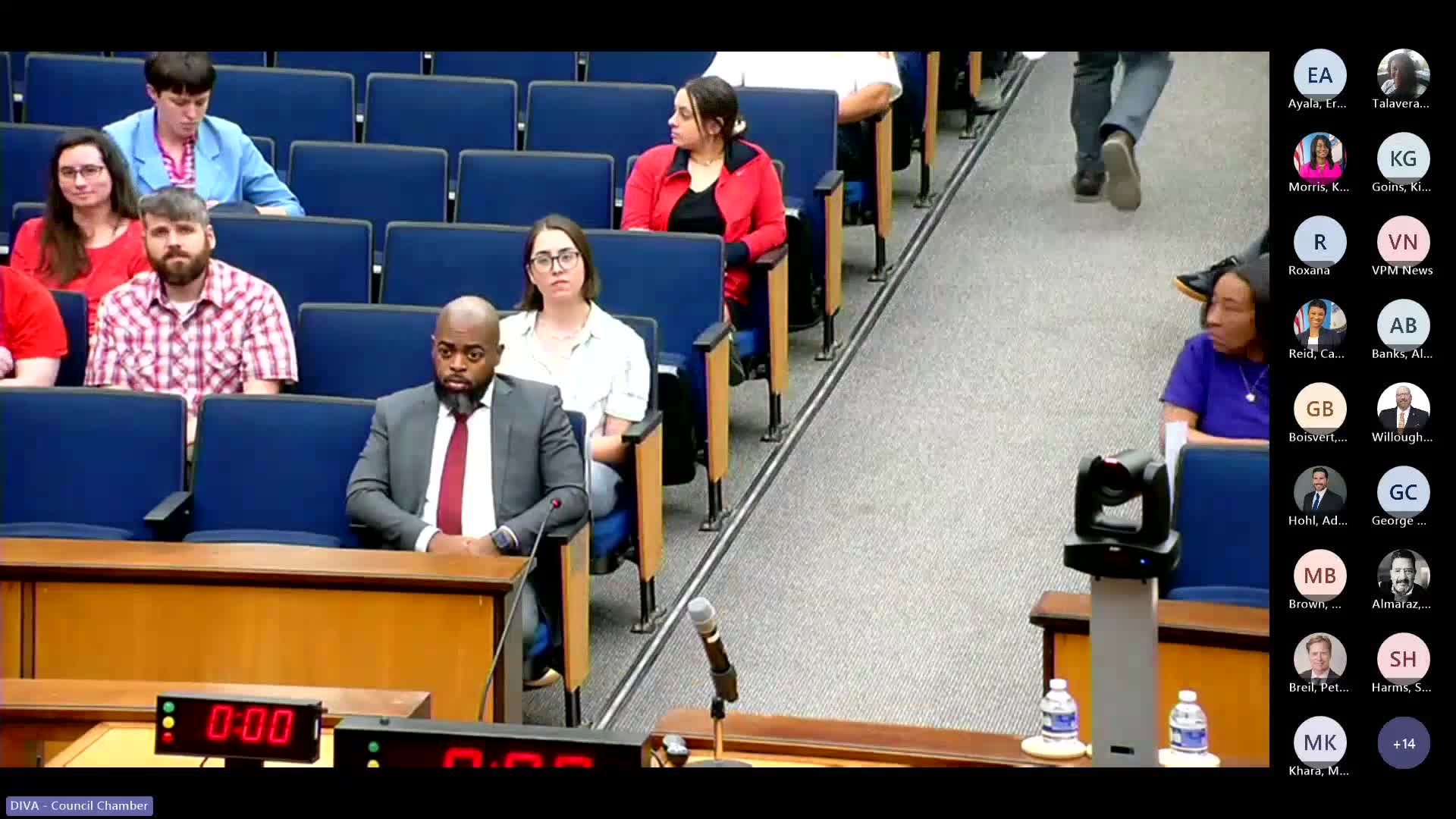
Renters and housing advocates urge Richmond to adopt proactive rental inspection ordinance
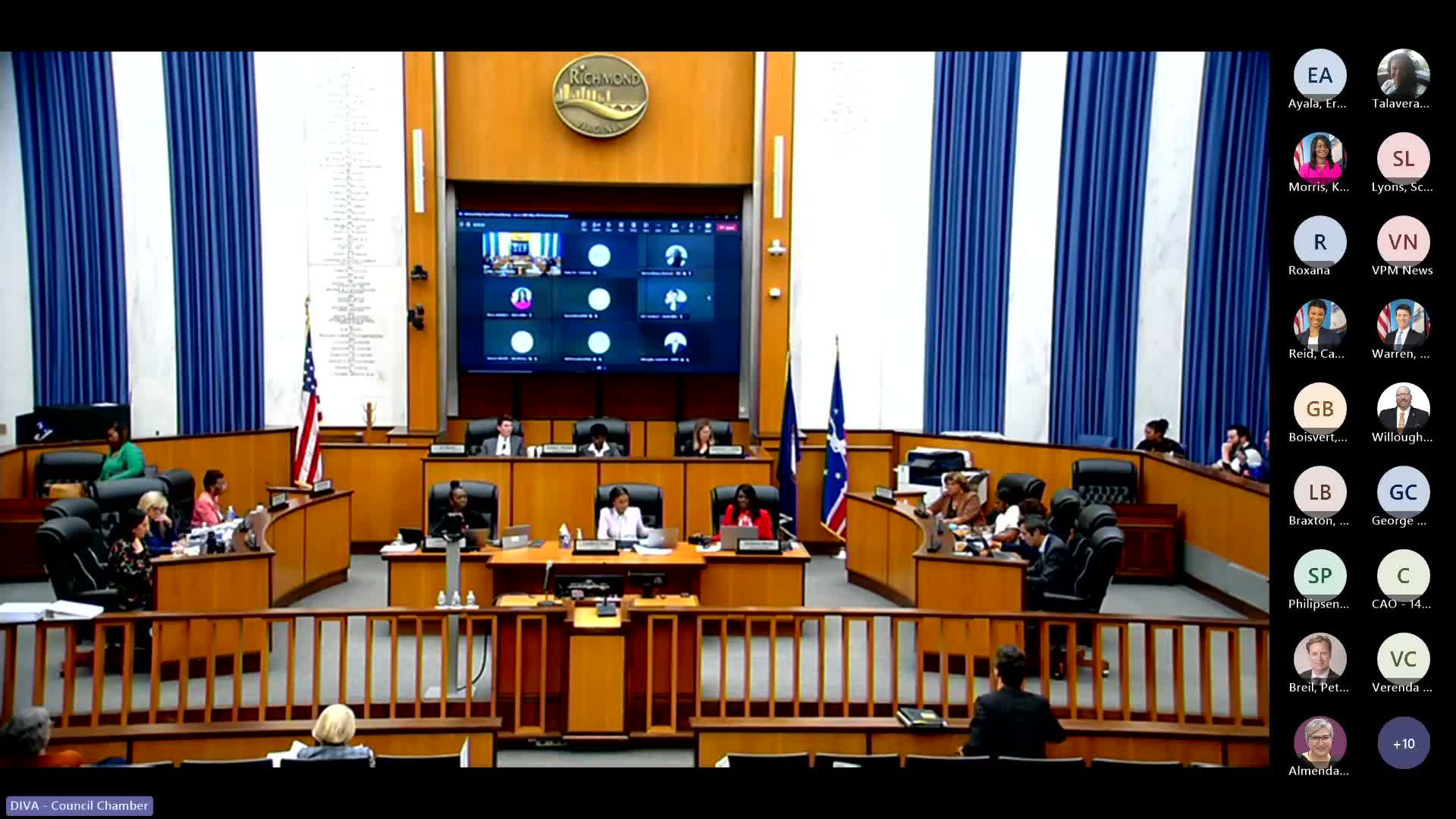
Council approves appointments, consent agenda and two expedited resolutions including interim inspector general
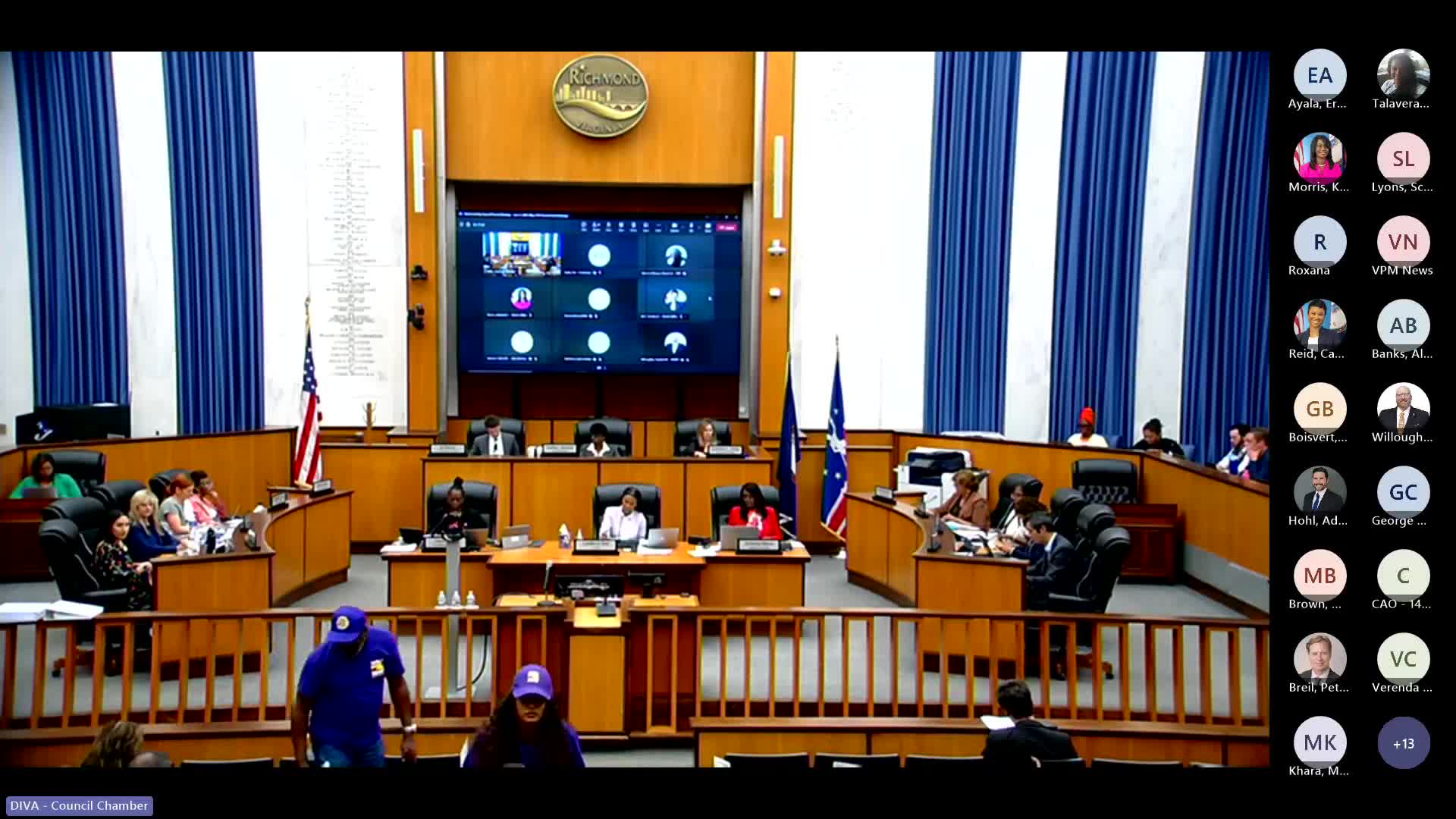
Council continues debate on photo speed monitoring resolution; asks administration for implementation details
